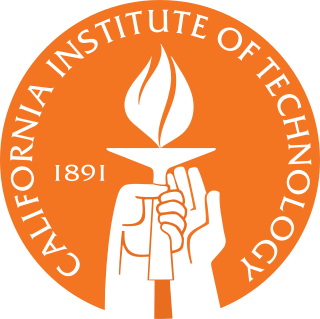
The California Institute of Technology (branded as Caltech) is a private research university in Pasadena, California. The university is responsible for many modern scientific advancements and is among a small group of institutes of technology in the United States which are strongly devoted to the instruction of pure and applied sciences. Due to its history of technological innovation, Caltech has been considered to be one of the world's most prestigious universities.

The University of California, Berkeley, is a public land-grant research university in Berkeley, California. It was established in 1868 and is the state's first land-grant university. It is also a founding member of the Association of American Universities and is the founding campus of the University of California system. Berkeley has the most top-ranked departments nationally and is one of the top universities in the world. More companies have been founded by alumni than any other university.

The UC Berkeley College of Chemistry is one of the fifteen schools and colleges at the University of California, Berkeley. It houses the department of chemistry and the department of chemical and biomolecular engineering, both of which are ranked among the best in the world. Its faculty and alumni have won 18 Nobel Prizes, 9 Wolf Prizes, and 11 National Medals of Science.
The Walter A. Haas School of Business is the business school of the University of California, Berkeley, a public research university in Berkeley, California. It was the first business school at a public university in the United States.
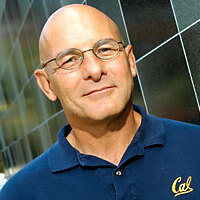
David Andrew Patterson is an American computer pioneer and academic who has held the position of professor of computer science at the University of California, Berkeley since 1976. He announced retirement in 2016 after serving nearly forty years, becoming a distinguished software engineer at Google. He currently is vice chair of the board of directors of the RISC-V Foundation, and the Pardee Professor of Computer Science, Emeritus at UC Berkeley.
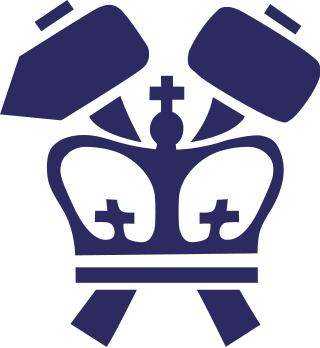
The Fu Foundation School of Engineering and Applied Science is the engineering and applied science school of Columbia University. It was founded as the School of Mines in 1863 and then the School of Mines, Engineering and Chemistry before becoming the School of Engineering and Applied Science. On October 1, 1997, the school was renamed in honor of Chinese businessman Z.Y. Fu, who had donated $26 million to the school.
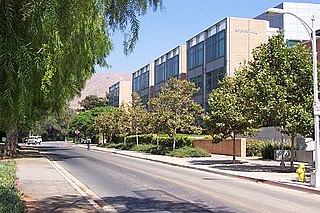
The Marlan and Rosemary Bourns College of Engineering, commonly known as 'Bourns Engineering' or 'BCOE', is a college of engineering at the University of California, Riverside. The college was established in 1989, and named in honor of Marlan and Rosemary Bourns, founders of Bourns, Inc. It is accredited by the Accreditation Board for Engineering and Technology.
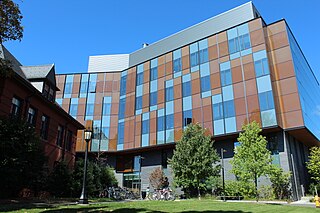
The School of Engineering is one of the ten schools that comprise Tufts University. The school offers undergraduate and graduate degrees in several engineering disciplines and computer science fields. Along with the School of Arts and Sciences (A&S) and the Fletcher School of Law and Diplomacy, the School of Engineering is located on the university's main campus in Medford and Somerville, Massachusetts. Currently, the engineering school enrolls more than 800 full-time undergraduates and 600 graduate students. The school employs over 100 full-time and part-time faculty members.

Kenneth Yigael Goldberg is an American artist, writer, inventor, and researcher in the field of robotics and automation. He is professor and chair of the industrial engineering and operations research department at the University of California, Berkeley, and holds the William S. Floyd Jr. Distinguished Chair in Engineering at Berkeley, with joint appointments in Electrical Engineering and Computer Sciences (EECS), Art Practice, and the School of Information. Goldberg also holds an appointment in the Department of Radiation Oncology at the University of California, San Francisco.
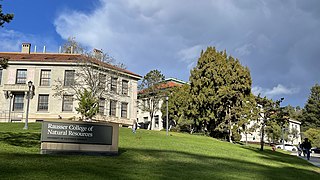
The Rausser College of Natural Resources (RCNR), or Rausser College, is the oldest college at the University of California, Berkeley and in the University of California system. Established in 1868 as the College of Agriculture under the federal Morrill Land-Grant Acts, CNR is the first state-run agricultural experiment station. The college is home to four internationally top-ranked academic departments: Agriculture and Resource Economics; Environmental Science, Policy, and Management; Nutritional Sciences and Toxicology; and Plant and Microbial Biology, and one interdisciplinary program, Energy and Resources Group. Since February 2020, it is named after former dean and distinguished professor emeritus Gordon Rausser after his landmark $50 million naming gift to the college.

The College of Engineering (CoE) is one of the three undergraduate colleges at the University of California, Santa Barbara.

The Henry Samueli School of Engineering (HSSoE) is the academic unit of the University of California, Irvine that oversees academic research and teaching in disciplines of the field of engineering. Established when the campus opened in 1965, the school consists of five departments, each of which is involved in academic research in its specific field, as well as several interdisciplinary fields. The school confers Bachelor of Science, Master of Science, and Doctor of Philosophy degrees.
The Irwin and Joan Jacobs School of Engineering is an undergraduate and graduate-level engineering school offering BS, BA, MEng, MS, MAS and PhD degrees at the University of California, San Diego in San Diego, California. The Jacobs School of Engineering is the youngest engineering school of the nation's top ten, the largest by enrollment in the University of California system, as well as the largest engineering school on the West Coast and the ninth-largest in the country. More than thirty faculty have been named members of the National Academies. The current dean of the Jacobs School of Engineering is Albert P. Pisano.
Robert W. Brodersen is a professor of electrical engineering, now emeritus, and a founder of the Berkeley Wireless Research Center (BWRC) at the University of California, Berkeley.

Michael James Carey is an American computer scientist. He currently serves as Bren Professor of Information and Computer Science in the Donald Bren School at the University of California, Irvine.














